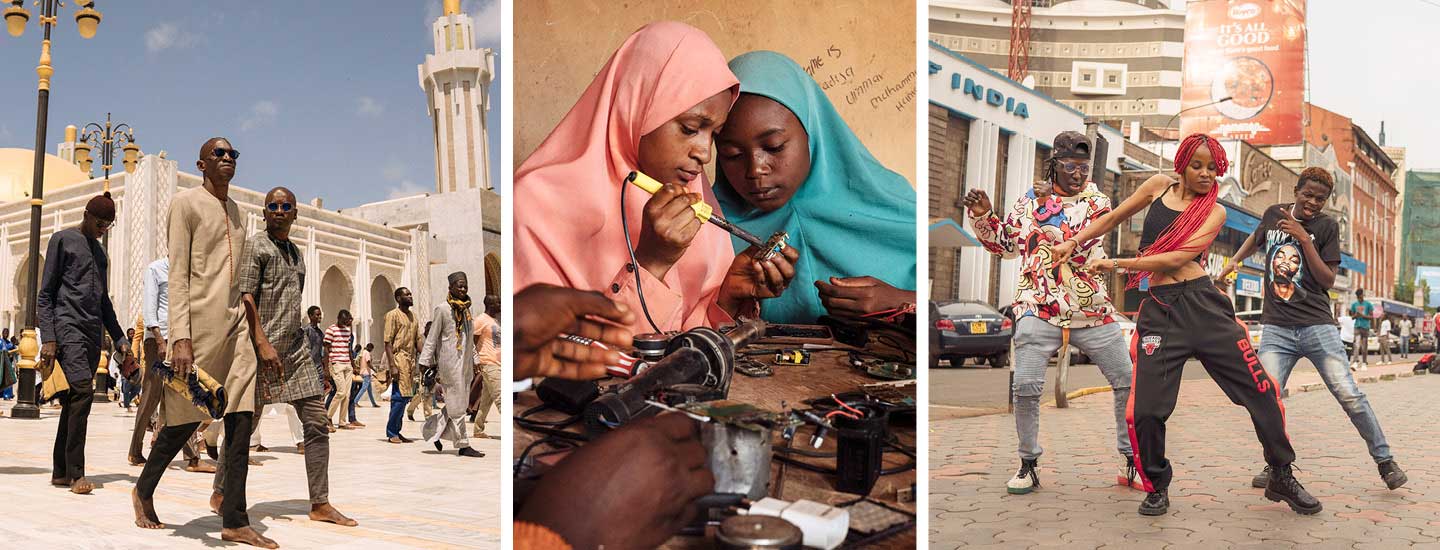North America, Europe, and Asia have long led the world in economic growth and education opportunities. But their populations are growing older as their birth rates drop. Meanwhile, the number of babies being born in Africa is rising. The continent’s overall population is projected to nearly double, to 2.5 billion, over the next 25 years. By 2050, one in four people in the world will be African.
In many ways, the future is looking bright for Africa’s growing population. Africans are living longer than ever, and they are more educated. About 44 percent of students in Africa graduated from high school in 2020, up from 27 percent in 2000. What’s more, Africa’s political leaders are demanding a bigger say in world issues, including the global economy and trade.
Amid this growth, African music and art are surging in popularity. In the United States, the Grammy Awards recently added a category for Best African Music. African clothing designers are making a splash at international fashion shows. And last year, the animated series Supa Team 4 premiered on Netflix. The show—created by African writers and producers—follows four teenage superheroes from Zambia on a mission to save the world.
All the positive attention comes as no surprise to Sipho Dlamini, a music executive from Zimbabwe. “It’s cool to be African,” he says.

